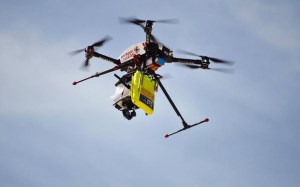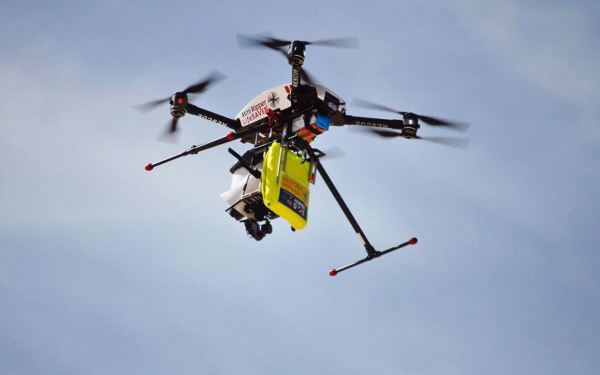For the past two summer seasons drones have been used to help protect swimmers on Australian beaches from shark attacks.
Now, following a successful trial, swimmers in Australian tropical waters will be protected by high-tech crocodile-spotting drones.
The drones are equipped with the same artificial intelligence as the shark spotters, with the ability to peer through murky waters and spot hungry predators.
The Ripper Group, an Australian drone services company, announced the results of the trials at the World of Drones conference in Brisbane yesterday.
Using new technology, developed with the help of University of Technology (UTS) researchers in Sydney, the drones have been taught to distinguish between crocodiles and tree trunks, Dr Paul Scully-Power, the company's co-founder (and Australia's first astronaut) revealed.
Ripper Group chief operations officer Ben Trollope says spotting crocodiles is much harder than sharks.
But using AI technology and a special algorithm, the drones can now identify a crocodile with 93 percent accuracy – about six times better than humans.
And in a matter of seconds, using the algorithm, the drone sends a signal indicating it has identified a shark or crocodile.
Little Ripper has developed a live stream management app to allow life savers to view live video feeds from their smartphones.
Extensive testing
Last year, research teams in Far North Queensland conducted a series of tests to gather more data and test a range of different senses and capabilities.
"The biggest issue for us is the murky water,” Trollope told ABC News. ”And crocs can spend 45 minutes underwater.”
“We have a range of different senses with water-penetration ability, and the ability to notice anything in the water that's different.”
The frequency of crocodile attacks is on the rise in Australia, as crocodile and human populations increase.
However, the number of attacks is relatively low compared to that of sharks.
Between 1985 and 2017, there was one fatal crocodile attack every three years in Queensland.
Government funding
In July, the Queensland Government pledged $105,000 in funding for surf life savers in Far North Queensland to use drones to spot crocs.
Since then, the Ripper Group and Surf Life Saving Queensland has conducted trials to identify, monitor, and track the movement of crocodiles.
The AI uses machine-learning, studying a database of images to develop methods for telling crocs and sharks apart from other marine animals.
Dr Scully-Power says the technology can differentiate up to 16 different types of marine life, as well as other objects such as boats, rocks, and humans.
And last summer, 51 drones were deployed around Australia to help spot rips and swimmers in distress.
Innovation award
SharkSpotter was named the national AI or Machine Learning Innovation of the Year at the 2018 Australian Information industry Association (AIIA) annual iAwards.
Looking ahead, Little Ripper Group plans to deploy long-range drones to monitor unpatrolled beaches in Australia, with the first ones expected to fly between Sydney and Newcastle.
Scully-Power says the drone technology has the potential to also be applied for a range of other use cases including transport, infrastructure, and even border protection.
The Ripper Group have been approached by many countries to deploy this cutting-edge technology, including the US, China, Japan, India, South Korea and Malaysia.


